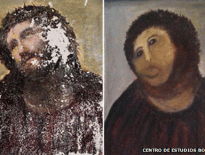The body of long-time Ethiopian PM Meles Zenawi is lying in state at the national palace in Addis Ababa, where it will stay until his funeral.

Thousands of people poured onto the streets of the capital on Tuesday evening as his casket arrived from the Belgian capital Brussels.
Mr Meles, who was 57, died suddenly from an infection while being treated in hospital there, authorities said.
The leader’s death has sparked fears of instability in Ethiopia.
State media say Deputy Prime Minister Hailemariam Desalegn will take over until elections in 2015.
But Mr Meles’ administration has been hard on the opposition and some fear the new prime minister may not be able to deal with the underlying political tension, says the BBC’s Noel Mwakugu in Addis Ababa.
Mr Meles has been praised for bringing development and economic growth to Ethiopia, but critics say they came at the cost of respect for plurality and human rights.
Mourning
Well-wishers gathered outside the terminal at Addis Ababa airport to see Mr Meles’ casket, draped in the green, gold and red national flag, carried out of the plane.
Many held aloft pictures of the man who took power as president in 1991 and went on to assume the powerful position of prime minister in 1995. Others carried placards reading: “Meles, your legacy will never die.”
State TV broadcast footage of the coffin passing slowly along the streets of the capital as it made its way to the prime minister’s official residence at the national palace.
A state of national mourning has been declared but no date for the funeral has been set.
Mr Meles had not been seen in public for weeks before his death was announced, and there had been increasingly intense speculation about his health – though authorities insist he had been on the road to recovery when he was suddenly struck down by an infection.
There is still no confirmation of the details of his medical condition.
Mr Hailemariam, who was appointed deputy prime minister and foreign affairs minister in 2010, will be sworn in as prime minister after an emergency meeting of parliament, said government spokesman Bereket Simon.
Mr Bereket insisted everything was stable in the country.
World leaders have led tributes to Mr Meles for leading Ethiopia to an impressive era of economic growth but human rights groups say the new leadership now has an opportunity to usher in a fresh spirit of political tolerance lacking during Mr Meles’s rule.
Analysts point out that Ethiopia plays a key role in the Horn of Africa, not only facing down its own rebels fighting for greater autonomy in the south-eastern ethnic Somali region, but supporting the fight against al-Qaeda linked al-Shabab rebels in Somalia.
Mr Meles also carved out a major role for himself in Africa and internationally, mediating in the conflict in Sudan and South Sudan and taking a leading position in the African Union, which is headquartered in Addis Ababa.





